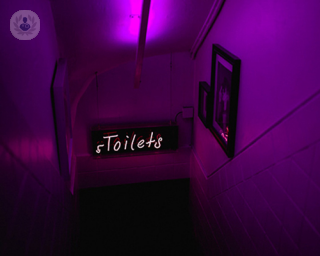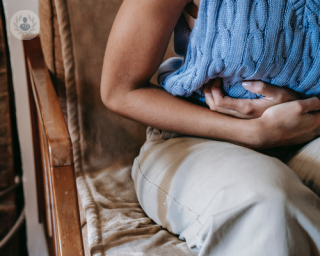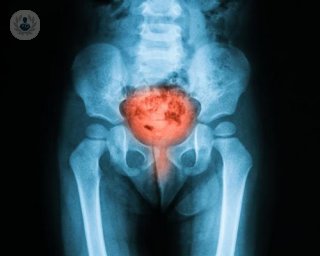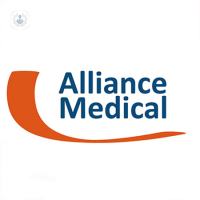Cystitis
What is cystitis?
Cystitis is an inflammation of the bladder, usually caused by a bacterial infection. The bladder is an important organ, that, along with the kidneys, ureters and urethra, make up the urinary system, which is responsible for filtering and removing bodily waste. Cystitis often causes acute or sudden pain. Although it is not a serious condition, more sinister complications can develop if the infection spreads to the kidney or if left untreated.
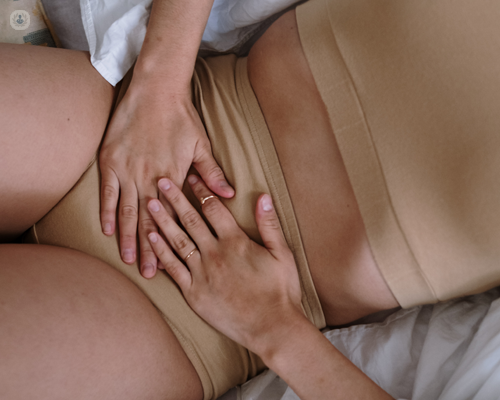
How does cystitis differ from a UTI?
A UTI is a bacterial infection of the urinary tract, which can include the urethra and kidneys, as well as the bladder. This infection can be caused by bacteria that enters the body through the urethra and multiplies. The most common UTI-causing bacteria is Escherichia coli (E coli). It can also be caused by an imbalance of naturally occurring bacteria.
Bacterial cystitis is a type of UTI, but not all cases of cystitis are caused by bacteria infections, and therefore are not classified as UTIs.
What causes cystitis?
Cystitis is most frequently caused by a bacterial infection, which occurs when bacteria from other areas of the body (e.g., from in the bowel or on the skin) get into the bladder. Bacteria are thought to come through the urethra, which carries urine out from your body.
Bacteria can get into the bladder in several different ways:
- through sex
- through insertion of a tampon
- by using a diaphragm
- insertion of a urinary catheter
- wiping back to front when going to the toilet
Other causes of cystitis, that are not bacteria related are:
- certain medicines
- radiation treatments
- irritating or harsh hygiene products
- prolonged use of catheters
Who is most at risk?
Cystitis rarely affects healthy men. If a man has an enlarged prostate, he is at risk. Women are more likely to get bladder infections, mostly due to anatomical factors. Women have shorter urethras that are closer to their anus, meaning infection causing bacteria can more easily reach the bladder. The female genitals also have the ideal conditions to harbour these potentially harmful bacteria.
Women who are more at risk of developing cystitis are sexually active and/or pregnant or postmenopausal. Other factors that can put both men and women at risk of cystitis are having:
- bladder or kidney stones
- weaker immune systems, caused by diabetes, HIV, or cancer treatment
Children and elderly people can also suffer from cystitis, but the condition is often overlooked and falsely diagnosed as a different one. Changes in behaviour, mood, and frequent wetting of oneself may be a sign of cystitis.
What are the symptoms of cystitis?
Symptoms in both men and women include:
- a need to pee constantly, or more frequently than usual
- a burning/stinging sensation when peeing
- cloudy, dark, or strong-smelling urine
- pain in the lower abdomen
- pelvic discomfort
- pressure in the lower abdomen
- fatigue
- feeling generally unwell
- mild fever
Sexual intercourse can be painful for women. In children, the main symptoms are:
- vomiting
- fever
- feeling irritated
- a lack of interest in food/low appetite
- feeling weak
How can cystitis be prevented?
Cystitis infections can be difficult to deal with and, although they aren’t a serious health concern, they can be unbearably painful. Some steps that can be taken to prevent cystitis include:
- Drinking plenty of fluid, especially water. Cranberry juice is often recommended, but research is conflicting as to whether there are any benefits.
- Urinating frequently and avoiding ‘holding it in’.
- Always wiping from front to back after passing stool to avoid the spread of bacteria from the anus.
- Showering instead of bathing.
- Avoiding harsh or perfumed soaps when washing genitals and any other hygiene products that can cause irritation.
- Always emptying your bladder after sexual intercourse.
A doctor may prescribe a longer course of antibiotics, or continuous antibiotics for a number of months as a preventative measure.
When should I seek medical attention?
Consider visiting a GP if you are experiencing symptoms of cystitis for more than three days and you experience any of the following:
- back, side, or severe lower abdomen pain
- fever or chills
- nausea or vomiting
- blood in the urine
If you are pregnant with symptoms, have a history of UTIs, or are experiencing symptoms after a course of antibiotics, you should visit your GP. If a child presents symptoms of cystitis, bring them to visit a GP.
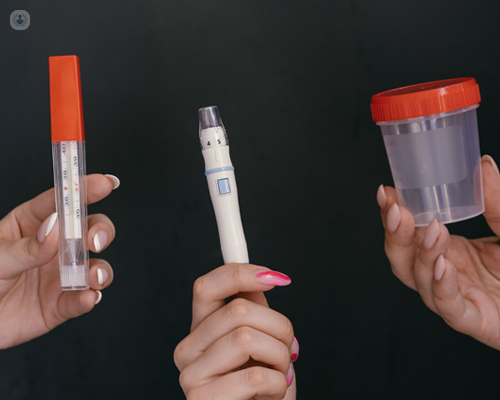
How is cystitis diagnosed?
A urine sample may be taken to determine the cause of the cystitis. An STI test may also be carried out to rule out other causes, as they present similar symptoms. In more serious, or in recurring cases, cystoscope (image testing), biopsy of bladder tissues, and X-rays may be done to determine the underlying causes.
Can cystitis go away on its own?
Normally, cystitis will go away by itself. GPs will often recommend taking pain killers to manage the symptoms until the condition subsides.
How is cystitis treated?
Depending on the cause, a course of antibiotics that last three days will be prescribed, but a doctor may recommend waiting two days before taking them, to see if the symptoms go away by themselves.
What are the best home remedies for cystitis?
Usually, cystitis goes away on its own in mild cases and can be treated from home by using self-help methods to ease symptoms. Patients are encouraged to:
- take painkillers (paracetamol)
- increase water intake
- use hot water bottle to sooth stomach pain
- not have sex
- avoid juice, coffee, and alcohol
- urinate often
- wear cotton underwear and loose clothes
How is recurring cystitis treated?
Recurring cystitis is treated by:
- low dose antibiotics taken for up to six months
- single dose antibiotics taken after sex, if that is a trigger
- vaginal oestrogen cream, for postmenopausal women
Sometimes, a chronic bladder infection won’t be detected by a urinary test for cystitis. Similarly, a course of antibiotics won’t relieve the symptoms. Interstitial cystitis (IC) is a chronic condition that affects the tissue of the bladder. The cause of chronic cystitis is unknown. Speak to your doctor to have further tests arranged to be carried out.
What complications can arise?
If treated promptly, complications rarely occur. However, if left untreated, the following can occur:
- Kidney infections (pyelonephritis), causing permanent kidney damage
- Microscopic haematuria, blood cells in the urine that can only be seen under a microscope

